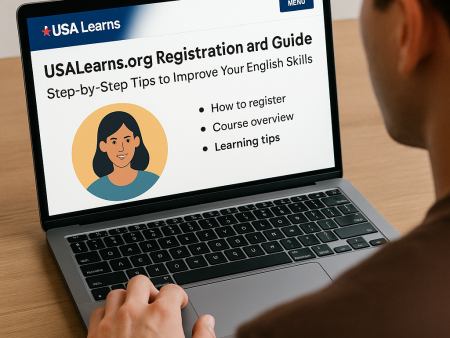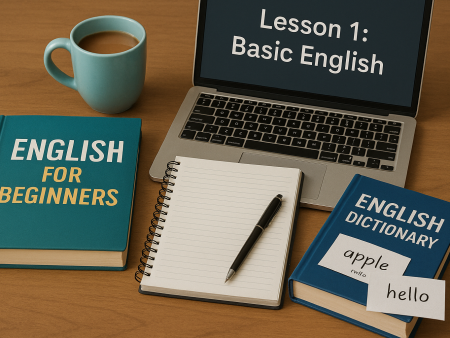Learning English quickly might seem like a challenge, but with the right approach, it’s absolutely achievable. Whether you want to improve for work, travel, or personal growth, mastering English can open doors to endless opportunities. The key is to focus on practical strategies that fit your lifestyle and keep you motivated.
You don’t need to spend years in a classroom to see progress. By incorporating simple techniques into your daily routine, you can build confidence and fluency faster than you think. From immersing yourself in the language to leveraging modern tools, there are countless ways to make learning enjoyable and effective.
Why Learn English Quickly?
Proficiency in English expands opportunities across education, career, and social interactions. Mastering the language allows you to access global resources, participate in international conversations, and improve job prospects in competitive markets. Quick learning saves time, enabling you to achieve fluency efficiently while maintaining focus on other priorities.
- Broader Career Opportunities
English fluency enhances roles in multinational corporations, especially in fields like technology, business, and aviation. Employers frequently value candidates who communicate effectively in English, the dominant language in global business and trade.
- Access to Global Education
Many prestigious academic programs require English proficiency as part of their admission criteria. Learning quickly ensures eligibility for scholarships and access to renowned institutions.
- Engagement with Diverse Cultures
Learning English enables comprehension of cultural content like movies, books, and music. It bridges cultural gaps and encourages authentic interactions during international travel or communication.
- Effective Online Learning
Over 90% of information on the internet is in English. Learning the language quickly allows access to free tutorials, forums, and e-learning platforms like Coursera or YouTube to broaden knowledge effectively.
- Enhanced Social Connectivity
English provides tools for joining global discussions and expanding professional and personal networks. Fluency fosters meaningful relationships in multilingual environments.
The ability to learn English in less time ultimately creates a competitive advantage in a range of crucial global contexts.
Materials And Tools
Utilizing the right materials and tools is essential for learning English quickly and efficiently. These resources provide structured pathways to improve your skills and accelerate language acquisition.
Recommended Apps And Websites
Applications and online platforms provide a convenient way to learn English. Start with apps like Duolingo and Memrise for vocabulary and grammar practice. Leverage LingQ for listening and reading exercises. Alternatively, free language learning websites such as BBC Learning English and VOA Learning English offer structured lessons designed for learners at varying levels. Use Quizlet to create custom flashcards for personalized practice.
For personalized guidance, enroll in platforms like iTalki or Preply to access virtual tutors. Freemium online options like Coursera and edX also offer English language courses, combining academic depth with practical application.
Essential Study Materials
Study materials form a foundation for structured learning. Invest in quality grammar and vocabulary textbooks like “English Grammar in Use” by Raymond Murphy for detailed grammar explanations. Read graded readers, specifically designed for non-native speakers, to build reading comprehension.
Download audiobooks or podcasts tailored for English learners, such as “The English We Speak” by BBC, to enhance listening skills. Practice with actual English newspapers, magazines, or digital articles, focusing on global publications like The New York Times or The Guardian.
Finding A Language Partner
Engaging with a language partner accelerates learning through real-world conversation. Find partners via platforms such as Tandem or HelloTalk, where native speakers exchange language expertise. Participate in local language exchange meetups or virtual communities to interact socially while practicing English.
For personalized exchanges, connect with tutors or peers in forums like Reddit’s r/language_exchange. Commit to regular speaking sessions and use scheduling apps to maintain consistency in your practice.
Effective Learning Strategies
Adopting the right techniques is essential when focusing on how to learn English quickly. Implementing proven methods enhances language retention and boosts fluency efficiently.
Immerse Yourself In The Language
Surround yourself with the English language for faster progress. Watch English movies or TV shows with subtitles to understand context. Listen to English podcasts or audiobooks to increase exposure to different accents and tones. Set your device interfaces, like your phone or computer, to English for incidental learning. Integrating immersion methods into your routine fosters natural language familiarity.
Practice Speaking Regularly
Engage in daily conversations to improve speaking skills. Speak with native speakers or join English-speaking groups in person or online through platforms like Tandem. Record your voice and compare pronunciation using apps such as ELSA Speak. Consistent speaking practice eliminates hesitation and builds confidence.
Focus On Listening And Pronunciation
Improve listening and pronunciation by focusing on authentic sources. Listen to news channels like BBC or NPR to refine comprehension of accents and speech speed. Use pronunciation apps that provide instant feedback to enhance articulation. Repeating phrases while mimicking native speakers strengthens your auditory and speaking fluency.
Build Your Vocabulary Using Flashcards
Flashcards are effective for learning new words daily. Use tools like Anki or Quizlet to create digital flashcards that include word meanings and usage examples. Incorporate learned words into sentences to reinforce retention. Consistent vocabulary expansion simplifies understanding and boosts overall communication skills.
Master Basic Grammar First
Begin with foundational grammar rules for clearer sentence formation. Refer to beginner-level grammar books or online resources like Grammarly to learn verb conjugations, tenses, and punctuation. Understanding basic structures enables smoother conversations and text comprehension. Mastery of grammar basics supports advanced learning in the long run.
Techniques For Quick Progress
Learning English quickly becomes more effective with focused techniques that simplify vocabulary retention, listening comprehension, and daily practice. By incorporating these strategies into your routine, fluency and confidence will grow naturally.
Use Mnemonics To Remember Words
Leverage mnemonic devices to build vocabulary retention efficiently. Create associations, such as visual imagery, acronyms, or rhyming patterns, to connect unfamiliar words to familiar concepts. For example, remember “bizarre” as “bizarre = bazaar with unusual items.” This method helps recall new words during conversation or writing. Combine this with flashcards to reinforce learning.
Watch Movies And Shows With Subtitles
Watch English media with subtitles to enhance both vocabulary and comprehension. Choose content with clear accents, such as documentaries or educational series, and enable subtitles in English for dual-input learning. For beginners, simple shows like “Friends” or animated films simplify understanding. Progressively, turn off subtitles to test comprehension and pronunciation.
Use Music And Podcasts
Incorporate English songs and podcasts to boost linguistic exposure. Listen to music with clear lyrics, and follow along with printed lyrics to improve vocabulary and rhythm. Podcasts such as “The English We Speak” or “All Ears English” offer engaging lessons tailored for learners. Use this approach daily while commuting or during leisure time for immersive learning.
Read Simple Books And Articles
Opt for graded readers and beginner-level articles to improve reading skills. Books like “The Little Prince” or news articles from platforms such as BBC Learning English provide accessible content. Pay attention to sentence structures and highlight new words. Regular reading fosters faster comprehension and contextual learning.
Write Daily In English
Practice daily writing to improve grammar, sentence flow, and vocabulary. Keep a simple journal to document your day, write short essays on topics you enjoy, or engage in online forums to exchange thoughts. Use tools like Grammarly for error detection to refine your accuracy over time. Regular writing speeds up language mastery and builds confidence.
Setting Realistic Goals
Establishing achievable goals aligns your learning process with a clear direction and measurable outcomes.
Short-Term vs. Long-Term Goals
Short-term goals focus on immediate and manageable objectives. For example, learning 20 new vocabulary words per week, practicing daily for 15 minutes using apps like Duolingo, or perfecting basic grammar rules within one month. These tasks create momentum and maintain daily discipline.
Long-term goals anchor your learning journey with broader milestones. Examples include achieving B2-level proficiency within a year, reading an entire novel in English by a set date, or engaging in a 10-minute conversation with a native speaker without hesitation. These objectives encourage consistent progress and keep your end-goal in sight.
Tracking Your Progress
Monitoring your progress helps identify strengths and areas for improvement. Tools like language-learning apps, which provide progress reports, facilitate continuous evaluation. Regularly measuring improvements in listening, speaking, reading, and writing ensures balanced skill development.
Maintain a journal to document your learning activities. Note milestones such as understanding a podcast without subtitles or successfully completing an English-language online quiz. Periodic assessments, such as taking sample TOEFL practice exams, gauge your proficiency levels against measurable standards.
Common Challenges And How To Overcome Them
Overcoming obstacles in learning English requires targeted strategies that address specific challenges. Recognizing and addressing these difficulties ensures faster progress and improved fluency.
Dealing With Fear Of Speaking
Building confidence in speaking English begins with consistent practice in low-pressure environments. Engage in conversations with supportive language partners or tutors and focus on small, achievable tasks like introducing yourself or ordering food in English. Practice speaking aloud when reading books or repeating after podcasts to reduce anxiety over time.
If fear stems from judgment, join online language communities or forums like Tandem or HelloTalk where learners collectively practice. These platforms encourage communication in a safe space, helping to overcome the fear of making mistakes. Attend local English-speaking meetups to gain confidence through real-life interactions.
Overcoming Difficult Accents
Understanding and adapting to various English accents involves focused listening exercises. Dedicate time daily to listening to diverse accents through podcasts, movies, or YouTube channels. Some examples include BBC podcasts for British accents or American-accented audiobooks. This exposure improves comprehension and familiarizes you with varying pronunciations.
If imitation feels challenging, use pronunciation tools like Forvo or apps with audio playback features. Practice shadowing techniques by repeating sentences immediately after native speakers to fine-tune your accent. Learn phonetic patterns of problematic sounds through detailed guides or diagrams to grasp underlying nuances.
Staying Consistent In Practice
Consistency in your English learning routine guarantees steady improvement. Allocate 20–30 minutes daily to activities like vocabulary drills, grammar exercises, or listening sessions. Use apps like Duolingo or Memrise to structure learning into manageable daily goals. Create habits, such as watching an English video each morning or journaling in English at night.
Set specific weekly targets aligned with long-term fluency goals. For example, aim to master 15–20 new words or have three brief conversations per week. Use a progress tracker to measure accomplishments and adjust your approach if gaps are identified. Showing up daily ensures gradual yet consistent results.
Troubleshooting
Identifying and overcoming obstacles is essential when adopting strategies to learn English quickly. Addressing these challenges ensures steady progress and boosts confidence throughout your journey.
What To Do If You Don’t Have A Practice Partner
Explore alternatives to practice conversations if a language partner is unavailable. Join online language exchange platforms like Tandem or HelloTalk to connect with learners and native speakers. Practice listening and speaking through English podcasts or educational YouTube videos such as BBC Learning English or VOA Learning English. Use tools like speech-to-text apps (e.g., Google Translate) to test your pronunciation and improve speaking skills. Engage in self-dialogue by speaking aloud about your daily routine or narrating tasks, which strengthens your fluency. Participate in online forums like Reddit’s r/LanguageLearning community to receive feedback and guidance.
How To Stay Motivated
Sustain motivation by setting clear, achievable goals for your English-learning journey. Reward progress with small incentives, such as watching your favorite English movie without subtitles after mastering a set vocabulary target. Diversify your learning by alternating between grammar exercises and immersive activities like watching TV series or joining online English discussion groups. Follow inspiring content creators on platforms like Instagram or TikTok who share language-learning tips. Use tracking tools like Duolingo’s progress charts or a personal journal to recognize development and maintain focus. Celebrate finishing tasks such as completing a graded book or conversation practice session.
Managing Frustration During Slow Progress
Manage frustration by focusing on incremental progress. Break down goals into smaller steps, such as mastering basic sentences or improving a specific set of vocabulary words. Remember that language learning is a gradual process and setbacks are common. Use relaxation techniques such as deep breathing to counter negative feelings tied to slow progress. Seek support from others by sharing challenges with online communities or joining social media groups dedicated to those learning English. Review past achievements by revisiting earlier lessons or exercises to recognize improvements. Keep a flexible mindset, balancing efficiency with patience as you refine your language skills.
Helpful Tips For Faster Learning
Accelerating your English learning process requires integrating practical methods into your routine. Utilize the strategies below to ensure effective and efficient learning.
Join Online Communities
Online communities provide access to real-time interactions with English learners and native speakers. Platforms like Reddit’s r/languagelearning, Facebook groups focused on English practice, and language forums enable you to exchange insights and ask questions. Participating in discussion threads helps improve vocabulary, sentence construction, and cultural context. Joining these communities makes it easier to find answers to “how to learn English quickly” through shared learning pathways and resources.
Engage In Language Exchange Programs
Language exchange programs offer conversational practice with native speakers while you teach them your language. Use platforms like Tandem, HelloTalk, and Speaky to connect with partners worldwide for informal conversations. Speaking one-on-one helps improve fluency and pronunciation while providing instant feedback. Dual practice benefits both parties, enhancing your ability to learn English language skills through real-time interactions.
Keep A Journal Of New Words And Phrases
Maintaining a journal reinforces vocabulary and contextual phrases essential for language retention. Write down at least 10 new words or idioms daily, including their meanings and example sentences. Reviewing your journal weekly supports memory retention and builds your English lexicon. Implementing this habit contributes to easy learning English by consolidating frequently encountered terms.
Conclusion
Learning English quickly is entirely possible when you approach it with focus and the right strategies. By staying consistent and incorporating English into your everyday life, you’ll see steady progress that builds your confidence and skills.
Remember to embrace challenges as part of the journey and celebrate every milestone, no matter how small. With the right tools, techniques, and mindset, you’ll unlock opportunities and connect with the world in ways you never imagined.










